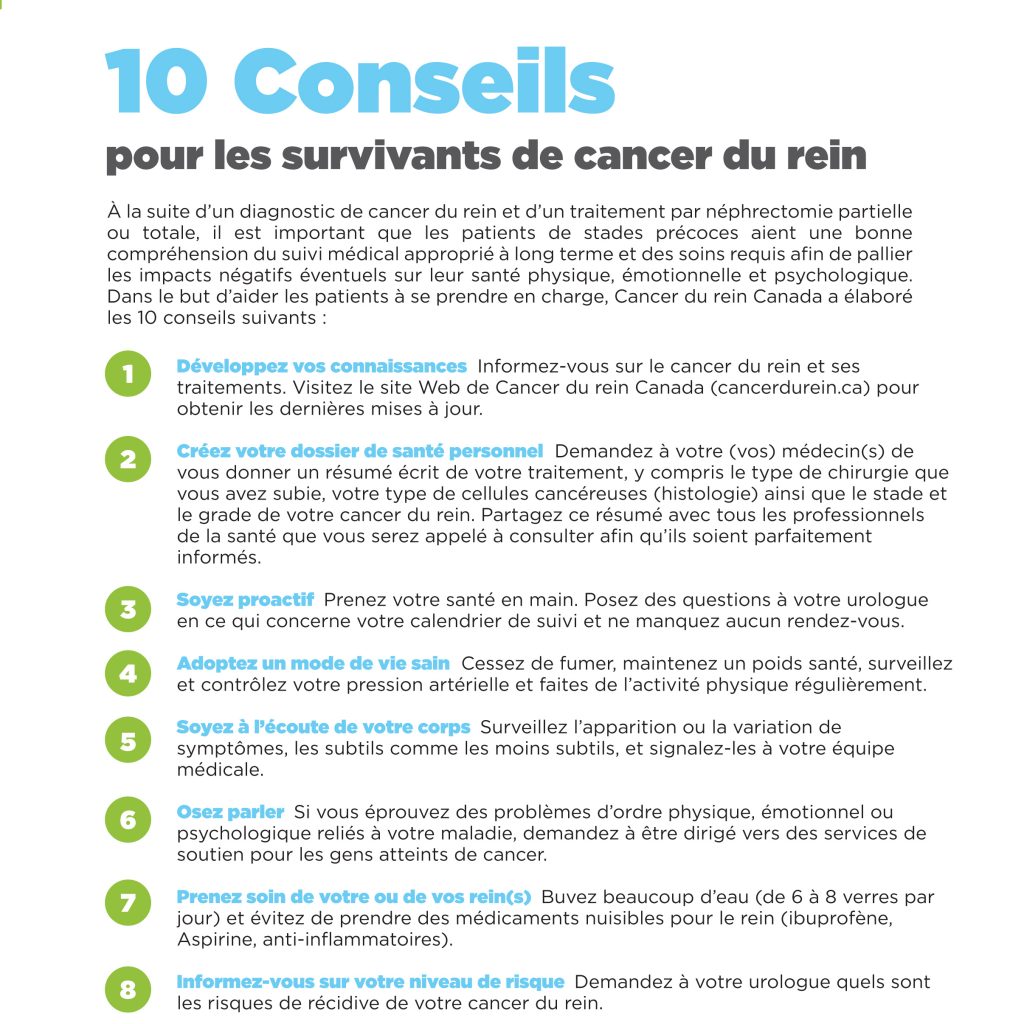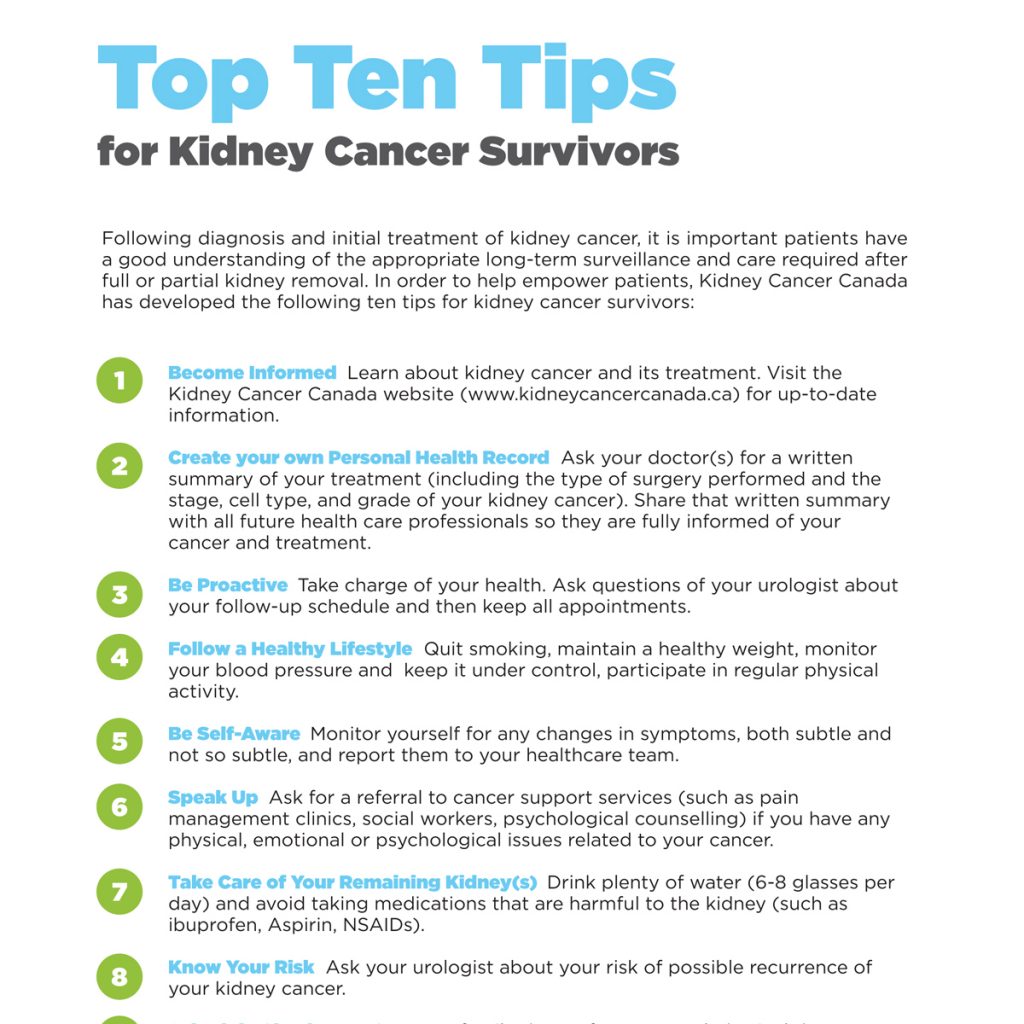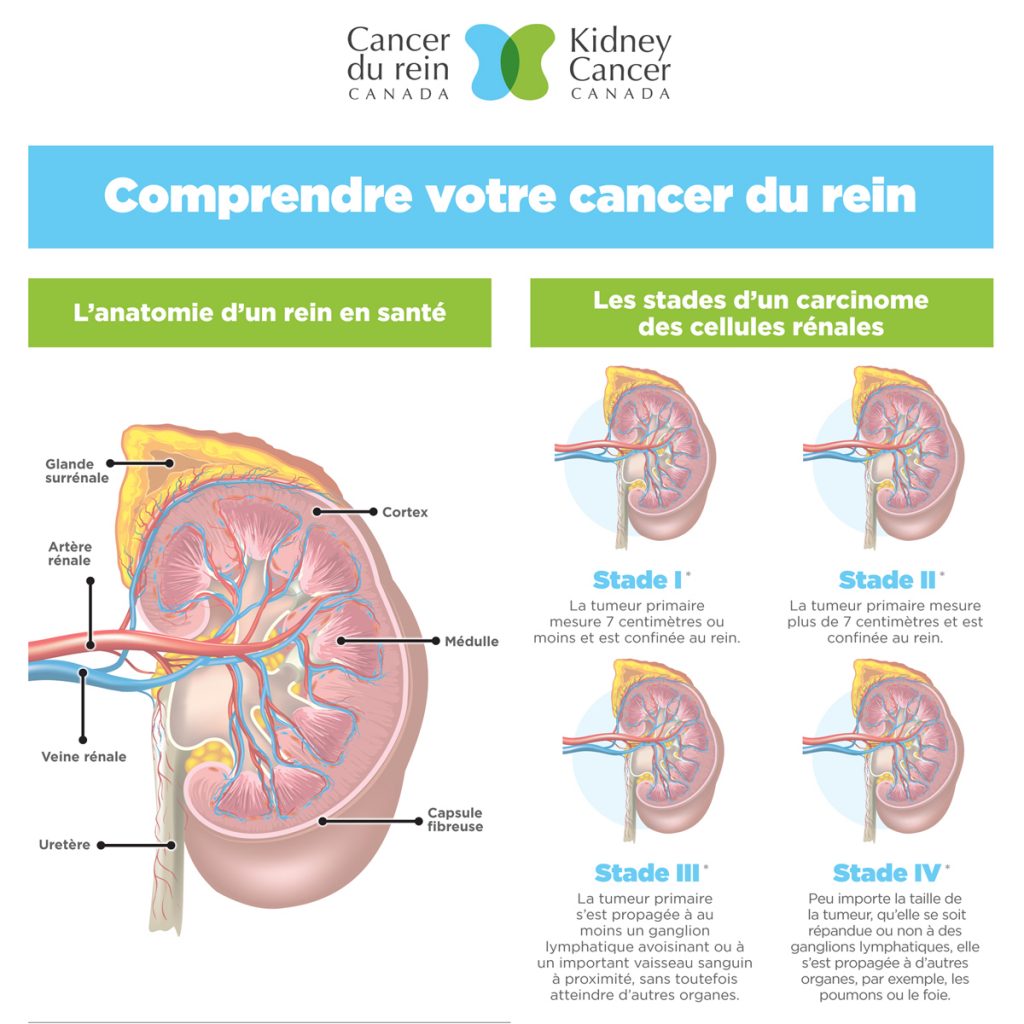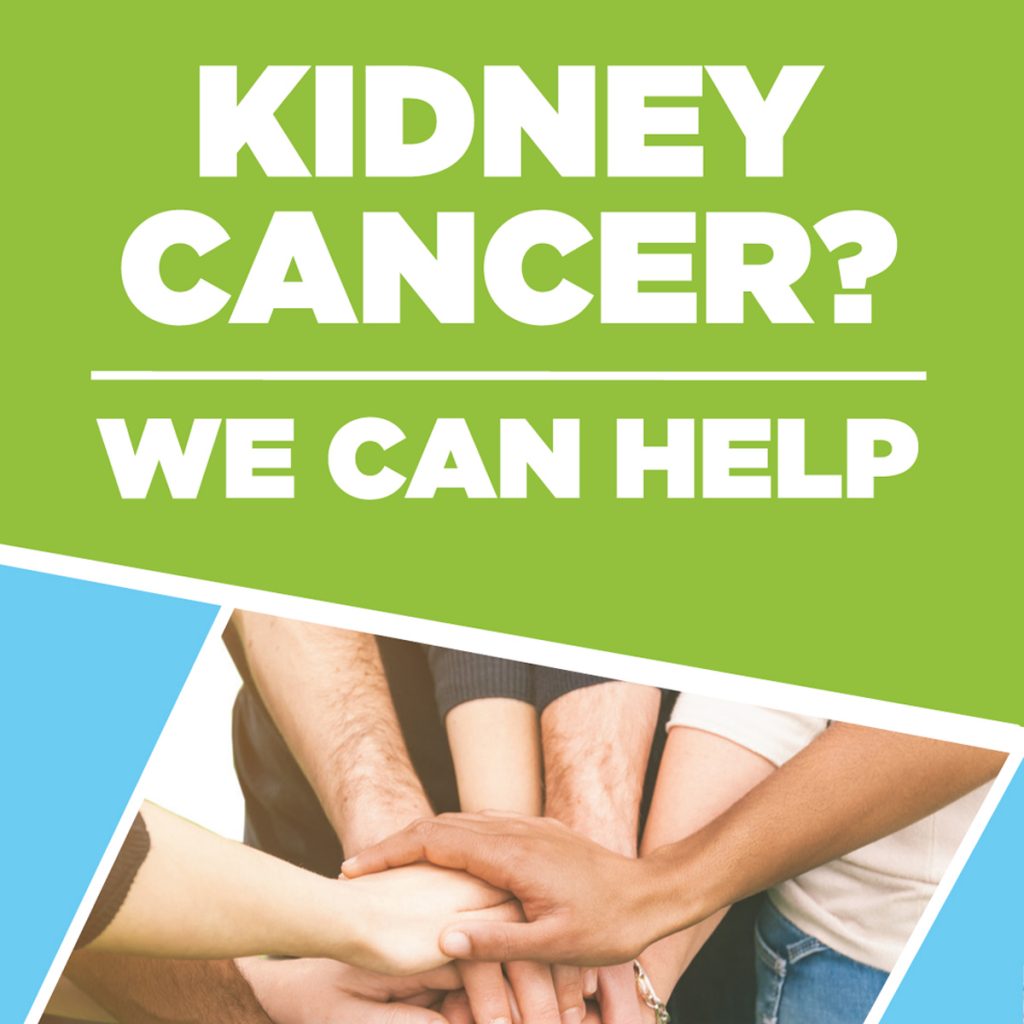
World Kidney Day – March 10
Kidney Health for All
Most kidney cancer patients with one healthy kidney do not need to follow a special diet. However, one of their main concerns is how to keep their remaining kidney as healthy as possible. There are general guidelines in maintaining kidney health, but other health issues such as diabetes, cholesterol, high blood pressure, heart condition, etc., need to be considered. If you need help or have questions, ask your healthcare team to refer you to a dietitian.
Keep your kidney(s) healthy
EXERCISE AND STAY ACTIVE
We all know today how important exercise is for overall physical and mental health. Exercise can improve your recovery after surgery and help at every stage of treatment.
Listen to Dr. Peter Black and Dr. Linda Trinh speak on the importance of exercise.
Dr. Linda Trinh published an exercise guide to help kidney cancer survivors increase exercise levels, limit sitting time, and increase quality of life. We also held a webinar with Dr. Linda Trinh where she introduced findings on the benefits of exercise and how to use the exercise guidebook.
EAT A HEALTHY DIET
If you have had surgery to remove either a whole kidney or a part, it is important to treat your remaining kidney well. One kidney is actually capable of performing the normal functions of both kidneys. However, while it is possible to live a normal and active life, it is important to make healthy lifestyle choices. Poor dietary and lifestyle habits can overwork a single kidney, causing diminished kidney function, which may lead to kidney failure. Therefore, if you treat your remaining kidney well, your entire body will benefit.
Most kidney cancer patients living with one kidney do not need to follow a particular diet, although they should maintain a healthy, low-fat, low-salt diet that includes grains, vegetables, and fruits. Alcohol, caffeine and high-protein foods should be limited.
Following the Canada Food Guide diet is recommended. Since the kidneys remove the waste material that proteins are broken down into, eating a protein rich diet can give the kidneys extra work to do. However, eating a moderate amount of protein is still necessary to ensure adequate nutrition.
Click on images to access details
MONITOR YOUR BLOOD SUGAR LEVELS
About half of people living with diabetes do not know they have this condition. This is especially important for those who are approaching middle age or older. People who have diabetes can develop kidney damage; but this can be prevented/ limited if the diabetes is well controlled. You need to check your blood sugar level as part of your general physical checkup.
MONITOR YOUR BLOOD PRESSURE
About half of people do not know they have high blood pressure. You need to check your blood pressure as part of your general physical checkup. High blood pressure can damage your kidneys. This is especially likely when associated with other factors like diabetes, high cholesterol and cardiovascular diseases. The risk can be reduced with good control of blood pressure.
STAY HYDRATED
The right level of daily fluid intake for any individual depends on many factors including exercise, climate and health conditions.
Fluid balance in the body is regulated by the kidneys, and excess water is filtered out. It is important to stay well-hydrated, but excess fluids can strain your kidney function.
8 cups, approximately 2 litres per day for a healthy person in a comfortable climate condition but consult your doctor on the appropriate fluid intake for your health condition.
DON’T SMOKE
Smoking increases the risk of kidney cancer and other health issues.
OVER-THE-COUNTER ANTI-INFLAMMATORY PAIN MEDICATION
If you take over-the-counter anti-inflammatory pain medication on a regular basis, inform your doctor as they could have an affect on your kidney.





























































